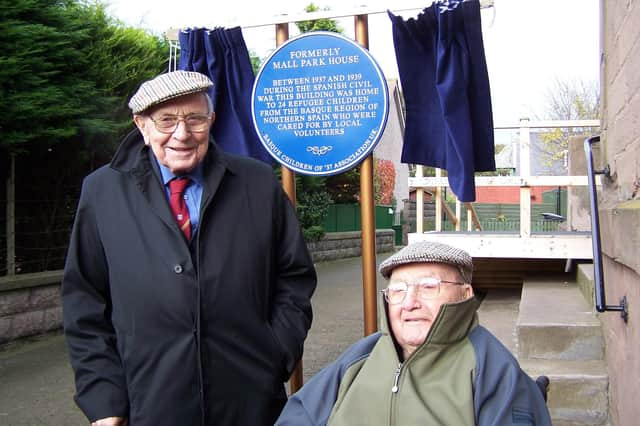Gable Ender - Welcoming refugees feeling war zones is nothing new


Refugees of the Spanish Civil War, they had been living under canvas in southern England, having sailed from Bilbao in Northern Spain on May 21.
The war had aroused considerable emotion in Scotland and some 500 Scots, a quarter of what became known as the British Battalion, which was part of the International Brigade that fought against the regime of the Fascist dictator General Franco.
Advertisement
Hide AdAdvertisement
Hide AdThe colony, the only group to be accommodated in Scotland, lived in Mall House, then a mansion standing in its own grounds.
At the time, Mall House belonged to the Dundee Children’s Breakfast Mission who had given the use of it to the Dundee Spanish Medical Aid Committee. The cost of keeping the all of the children was reckoned to be about £20 per week.
To raise money for their upkeep the children regularly performed in concerts all over Scotland. They dressed up in Spanish costumes and entertained by singing songs, including their own folk songs.
Although there were tensions, and even allegations of increased criminality, local organisations and individuals were generally supportive. The refugee campaign was never well funded, however money continued to come in from a variety of sources.
Advertisement
Hide AdAdvertisement
Hide AdA group of Glasgow sympathisers donated £37-3-0d, the Montrose Co-operative Society Educational Committee organised a whist drive with the proceeds going to the Home and an old age pensioner gave 10/- “for the Basque kiddies”.
Many individuals made donations of jam, sweets and clothes while, in what sounds like a modern idea, interested groups or societies were invited to adopt a child by paying 10/- per week towards their upkeep.
Despite searching through the newspapers of the time I was unable to find a report of the colony finally closing. I imagine that this was around 1939/40 but with World War II under way it was possibly no longer considered newsworthy.